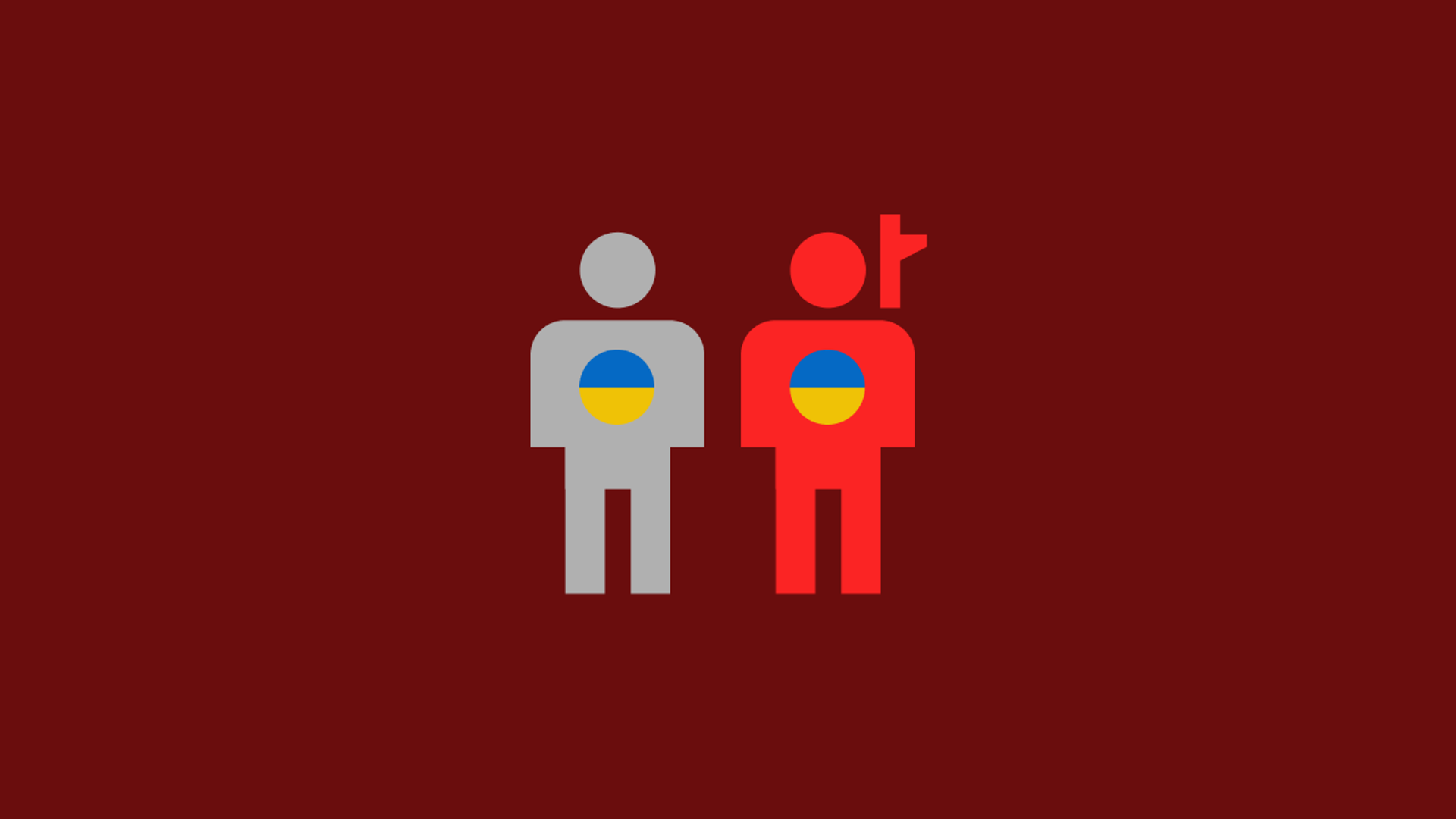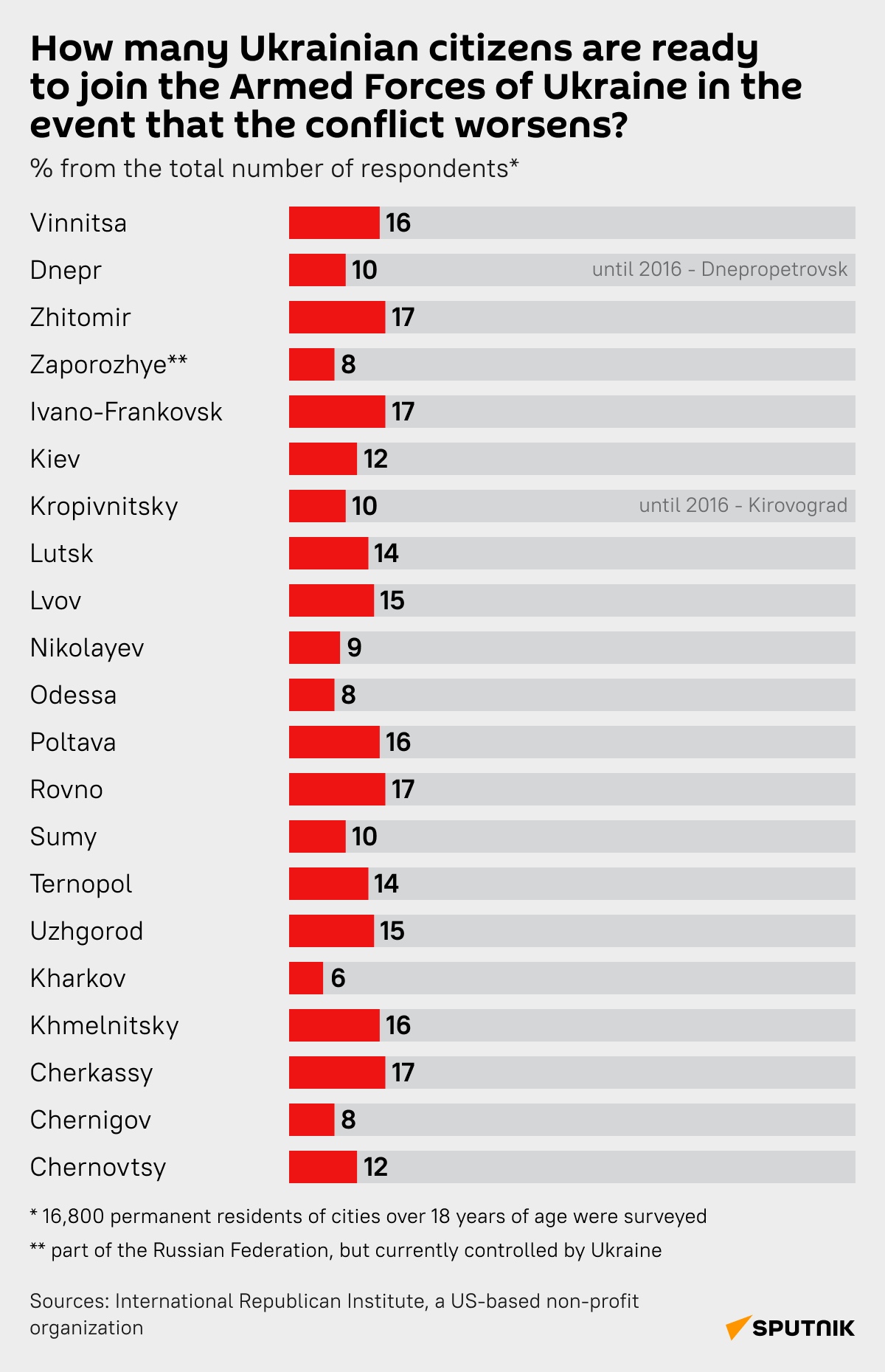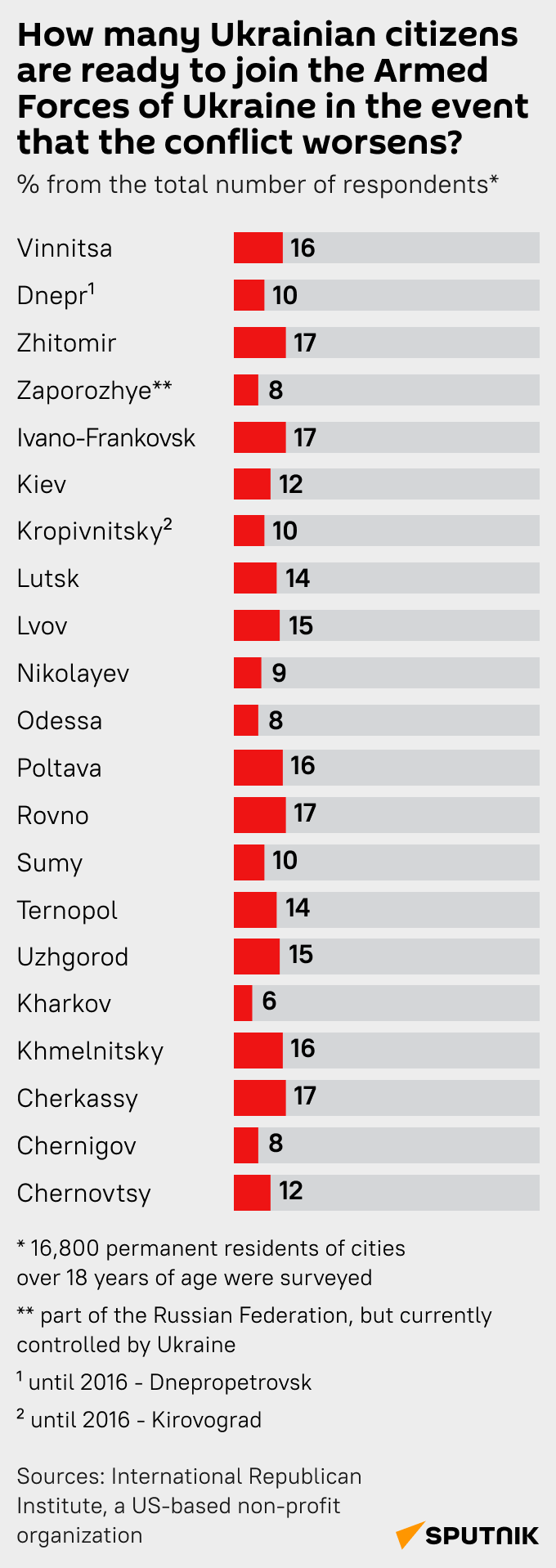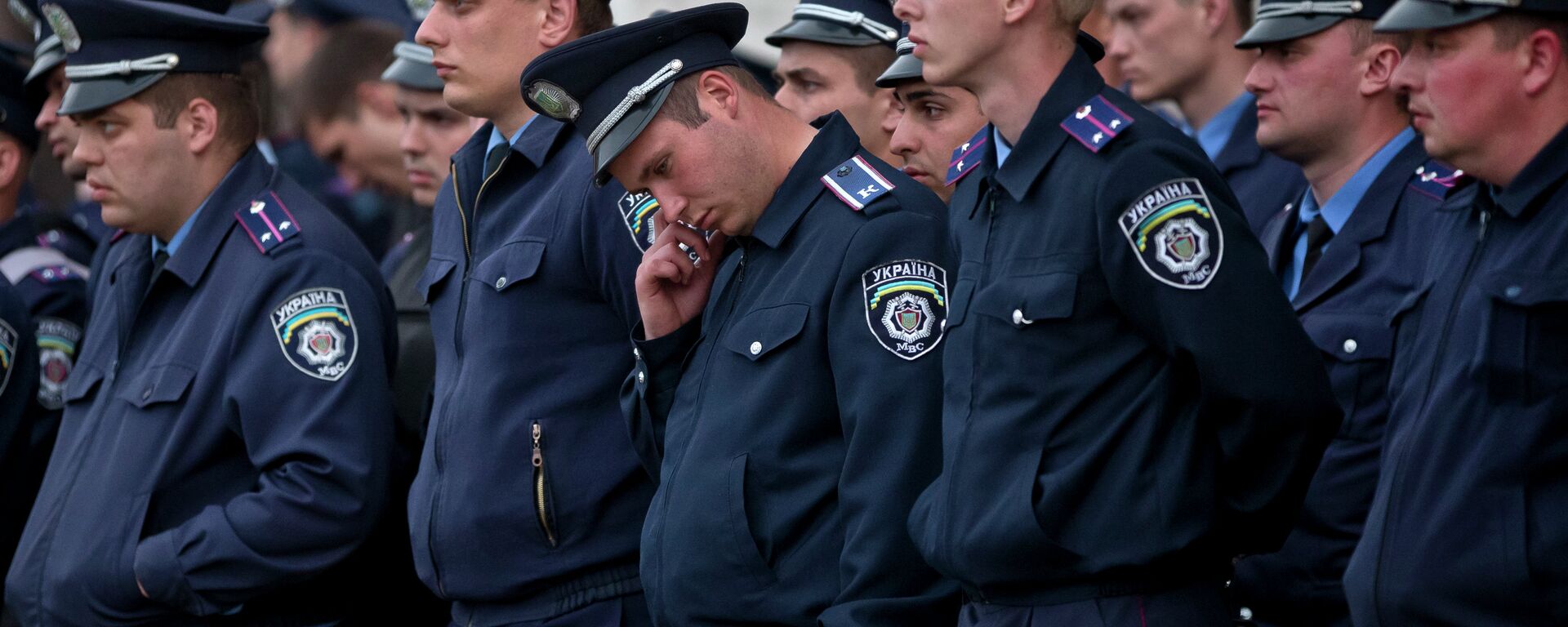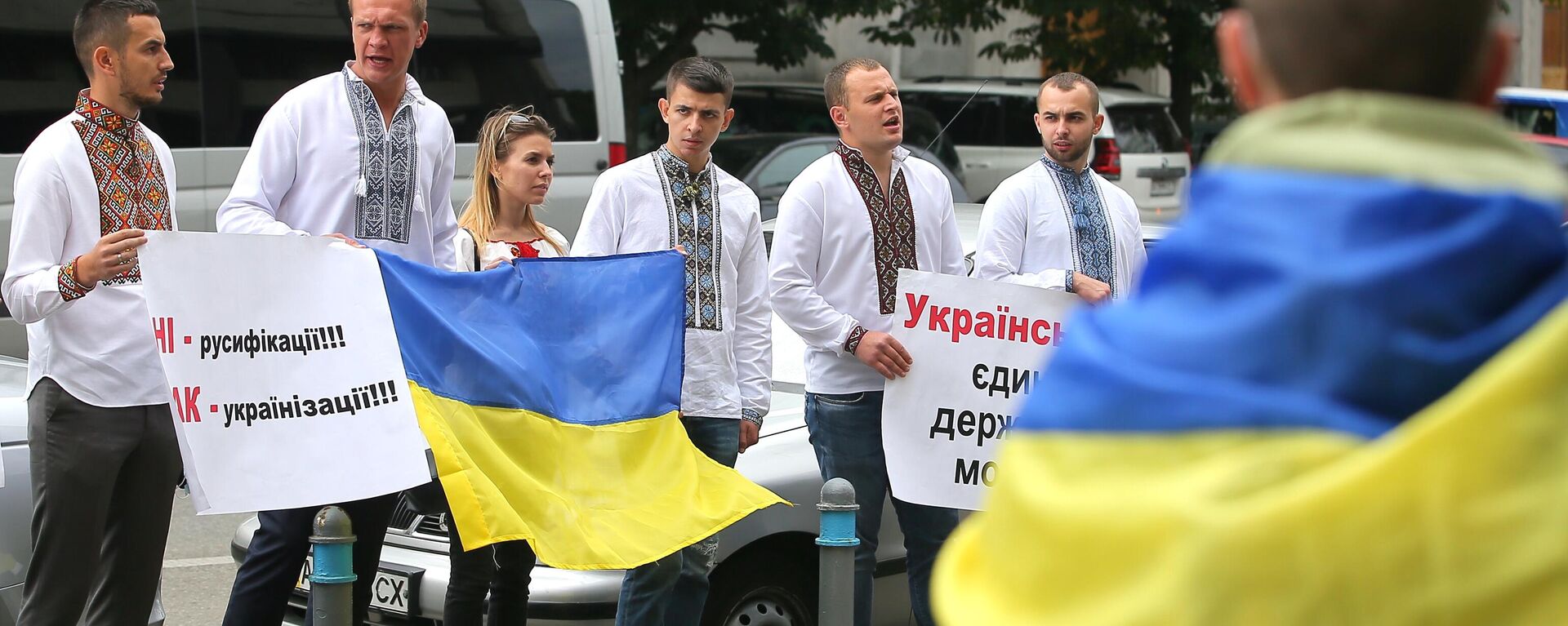https://sputnikglobe.com/20230715/ukrainians-unwilling-to-resist-russia-or-leave-cities--survey-1111872286.html
Ukrainians Unwilling to Resist Russia or Leave Cities – Survey
Ukrainians Unwilling to Resist Russia or Leave Cities – Survey
Sputnik International
A recent US-commissioned poll has shown that Ukrainians are reluctant to fight against Russia and leave their cities, even as military tensions escalate.
2023-07-15T14:54+0000
2023-07-15T14:54+0000
2023-07-15T15:52+0000
ukraine
russia
russia's special operation in ukraine
ukrainian crisis
survey
ukrainian armed forces
poll
opinion poll
infographic
https://cdn1.img.sputnikglobe.com/img/07e7/07/0f/1111895845_0:0:1280:720_1920x0_80_0_0_2ce95f3d67f8244e0615958abc780355.png
The poll was carried out by the Ukrainian sociological group "Rating" in late June but commissioned by the US-based non-profit organization International Republican Institute (IRI) and funded by the US Agency for International Development (USAID).It found that the majority of Ukrainian citizens have not suffered any damage to their homes during the special operation; that residents do not intend to join the Ukrainian Armed Forces (UAF) if the situation near their cities deteriorates nor plan to leave their homes. Low Willingness to ResistRating surveyed 16,800 residents of 21 cities under Ukrainian control, including the Russian city of Zaporozhye.When asked about their plans during escalating military tensions, the majority of respondents expressed their intent to stay in their cities. Only a small percentage showed a willingness to join the UAF and resist Russian troops, primarily from respondents in western Ukrainian cities less affected by the conflict.Specifically, 6% in Kharkov, 8% in Odessa, Chernigov, and Zaporozhye, and 9% in Nikolayev plan to join the Ukrainian Army if tensions escalate. These study results differ from the information promoted by Ukrainian propaganda.Problems With Bomb SheltersThe study also revealed widespread dissatisfaction with bomb shelters. In 18 out of 21 cities surveyed, the majority of respondents described their quality as "bad," "horrible," or "unavailable."In the less affected western cities of Uzhgorod and Ivano-Frankovsk, "difficult to say" slightly outweighed the negative responses.In Ternopol and Lutsk, two other western cities, the number of respondents who found it "difficult to answer" was equal to those who rated the shelters as "poor."Similarly, in Odessa, the number of people unsure about the quality of bomb shelters was equal to those who rated them as "bad" or "terrible."Russia Bombing Residential Buildings... Or Not?Residents from the 21 cities shared their experiences amid authorities' claims and propaganda about the war's impact on their homes.Across 18 cities, an overwhelming majority (94-100%) reported no damage from the ongoing Russian military operation. Figures of 73%, 66%, and 60% were observed in Nikolaev, Chernigov, and Kharkov, respectively.Among those with affected homes, a significant portion (20% in Nikolaev, 24% in Chernigov, and 30% in Kharkov) described the damage as "minor."Survey results indicated inadequate restoration efforts in these cities, with 63% in Chernigov reporting insufficient work (34% partially repaired, 29% no work done). In Kharkov and Nikolaev, the figures were 79% (29% partially repaired, 50% no work done) and 82% (20% partially repaired, 62% no work done), respectively.Notably, residents predominantly funded their own home repairs, with 71% in Nikolaev, 45% in Kharkov, and 77% in Chernigov personally financing restorations. Only 19% in Nikolaev, 46% in Kharkov, and 12% in Chernigov reported state funds being used for reconstruction.In Chernigov, funding from charities, foundations, and international organizations (26% and 13%, respectively) played a significant role, surpassing government aid.Overall, residents did not expect government assistance for housing reconstruction. A substantial number, such as 65% in Nikolaev, 47% in Kharkov, and 71% in Chernigov, expressed their intention to personally restore their houses, despite the remaining damage being unrepaired.Strange Responses About EmigrationThe majority of respondents (51-72%) revealed that their close relatives did not emigrate from Ukraine or even relocate within the country after the onset of hostilities. Interestingly, among the surveyed Ukrainian citizens, only a small percentage (1-4%) of the around 5,700 with relatives who emigrated abroad expressed that their relatives had gone to Russia.These findings are notable considering the UN's report of 6.33 million Ukrainian refugees worldwide, with 1.28 million seeking refuge in Russia, the highest number among any other country.The survey results leave room for three possibilities: either the researchers coincidentally encountered individuals whose relatives did not go to Russia, residents in Ukrainian-controlled cities are too intimidated to admit their relatives' emigration to Russia, or the published results of the IRI study may not be entirely accurate.NATO Membership and Fate of Russian LanguageA significant percentage of residents in various Ukrainian cities expressed opposition to Ukraine joining NATO. In Odessa, it was 47%, while figures of 38%, 31%, 28%, and 28% were observed in Kharkov, Dnepr, Nikolaev, and Zaporozhye, respectively.Conversely, the highest support for NATO membership was found in western Ukraine, particularly in Lvov, where 92% voted in favor. The top five cities with the highest 'yes' votes (88-92%) were all in Western Ukraine: Lvov, Lutsk, Ivano-Frankovsk, Ternopol, and Rovno.A notable opinion gap between Western and Southeastern Ukraine remains.Additionally, the majority of residents in major southwestern Ukrainian cities, including the Kiev-controlled Russian city of Zaporozhye, acknowledged speaking Russian at home. According to the study, 61% in Nikolayev, 66% in Dnepr, 67% in Zaporozhye, 78% in Kharkov, and 80% in Odessa confirmed this. Moreover, 38% in Kiev and 41% in Chernigov also reported speaking Russian at home.
https://sputnikglobe.com/20230702/investigation-underway-in-odessa-over-55mln-spending-on-defective-bomb-shelters---source-1111624179.html
https://sputnikglobe.com/20221124/how-europe-created-its-latest-refugee-crisis-1104664158.html
https://sputnikglobe.com/20220612/how-russian-and-other-minority-languages-are-being-erased-in-ukraine-1096244658.html
ukraine
russia
Sputnik International
feedback@sputniknews.com
+74956456601
MIA „Rossiya Segodnya“
2023
Sputnik International
feedback@sputniknews.com
+74956456601
MIA „Rossiya Segodnya“
News
en_EN
Sputnik International
feedback@sputniknews.com
+74956456601
MIA „Rossiya Segodnya“
Sputnik International
feedback@sputniknews.com
+74956456601
MIA „Rossiya Segodnya“
russia special military operation, ukrainian crisis, ukraine survey, ukraine unwilling, ukraine morale
russia special military operation, ukrainian crisis, ukraine survey, ukraine unwilling, ukraine morale
Ukrainians Unwilling to Resist Russia or Leave Cities – Survey
14:54 GMT 15.07.2023 (Updated: 15:52 GMT 15.07.2023) A recent US-commissioned poll has shown that Ukrainians are reluctant to fight against Russia and leave their cities, even if military tensions escalate.
The poll was carried out by the Ukrainian sociological group "Rating" in late June but
commissioned by the US-based non-profit organization International Republican Institute (IRI) and funded by the US Agency for International Development (USAID).
It found that the majority of Ukrainian citizens have not suffered any damage to their homes during the special operation; that residents do not intend to join the Ukrainian Armed Forces (UAF) if the situation near their cities deteriorates nor plan to leave their homes.
Low Willingness to Resist
Rating surveyed 16,800 residents of 21 cities under Ukrainian control, including the Russian city of Zaporozhye.
When asked about their plans during escalating military tensions, the majority of respondents expressed their intent to stay in their cities. Only a small percentage showed a willingness to join the UAF and resist Russian troops, primarily from respondents in western Ukrainian cities less affected by the conflict.
Specifically, 6% in Kharkov, 8% in Odessa, Chernigov, and Zaporozhye, and 9% in Nikolayev plan to join the Ukrainian Army if tensions escalate. These study results differ from the information promoted by Ukrainian propaganda.
Problems With Bomb Shelters
The study also revealed
widespread dissatisfaction with bomb shelters. In 18 out of 21 cities surveyed, the majority of respondents described their quality as "bad," "horrible," or "unavailable."
In the less affected western cities of Uzhgorod and Ivano-Frankovsk, "difficult to say" slightly outweighed the negative responses.
In Ternopol and Lutsk, two other western cities, the number of respondents who found it "difficult to answer" was equal to those who rated the shelters as "poor."
Similarly, in Odessa, the number of people unsure about the quality of bomb shelters was equal to those who rated them as "bad" or "terrible."
Russia Bombing Residential Buildings... Or Not?
Residents from the 21 cities shared their experiences amid authorities' claims and propaganda about the war's impact on their homes.
Across 18 cities, an overwhelming majority (94-100%) reported no damage from the ongoing Russian military operation. Figures of 73%, 66%, and 60% were observed in Nikolaev, Chernigov, and Kharkov, respectively.
Among those with affected homes, a significant portion (20% in Nikolaev, 24% in Chernigov, and 30% in Kharkov) described the damage as "minor."
Survey results indicated inadequate restoration efforts in these cities, with 63% in Chernigov reporting insufficient work (34% partially repaired, 29% no work done). In Kharkov and Nikolaev, the figures were 79% (29% partially repaired, 50% no work done) and 82% (20% partially repaired, 62% no work done), respectively.
Notably, residents predominantly funded their own home repairs, with 71% in Nikolaev, 45% in Kharkov, and 77% in Chernigov personally financing restorations. Only 19% in Nikolaev, 46% in Kharkov, and 12% in Chernigov reported state funds being used for reconstruction.
In Chernigov, funding from charities, foundations, and international organizations (26% and 13%, respectively) played a significant role, surpassing government aid.
Overall, residents did not expect government assistance for housing reconstruction. A substantial number, such as 65% in Nikolaev, 47% in Kharkov, and 71% in Chernigov, expressed their intention to personally restore their houses, despite the remaining damage being unrepaired.
Strange Responses About Emigration
The majority of respondents (51-72%) revealed that their close relatives did not emigrate from Ukraine or even relocate within the country after the onset of hostilities. Interestingly, among the surveyed Ukrainian citizens, only a small percentage (1-4%) of the around 5,700
with relatives who emigrated abroad expressed that their relatives had gone to Russia.
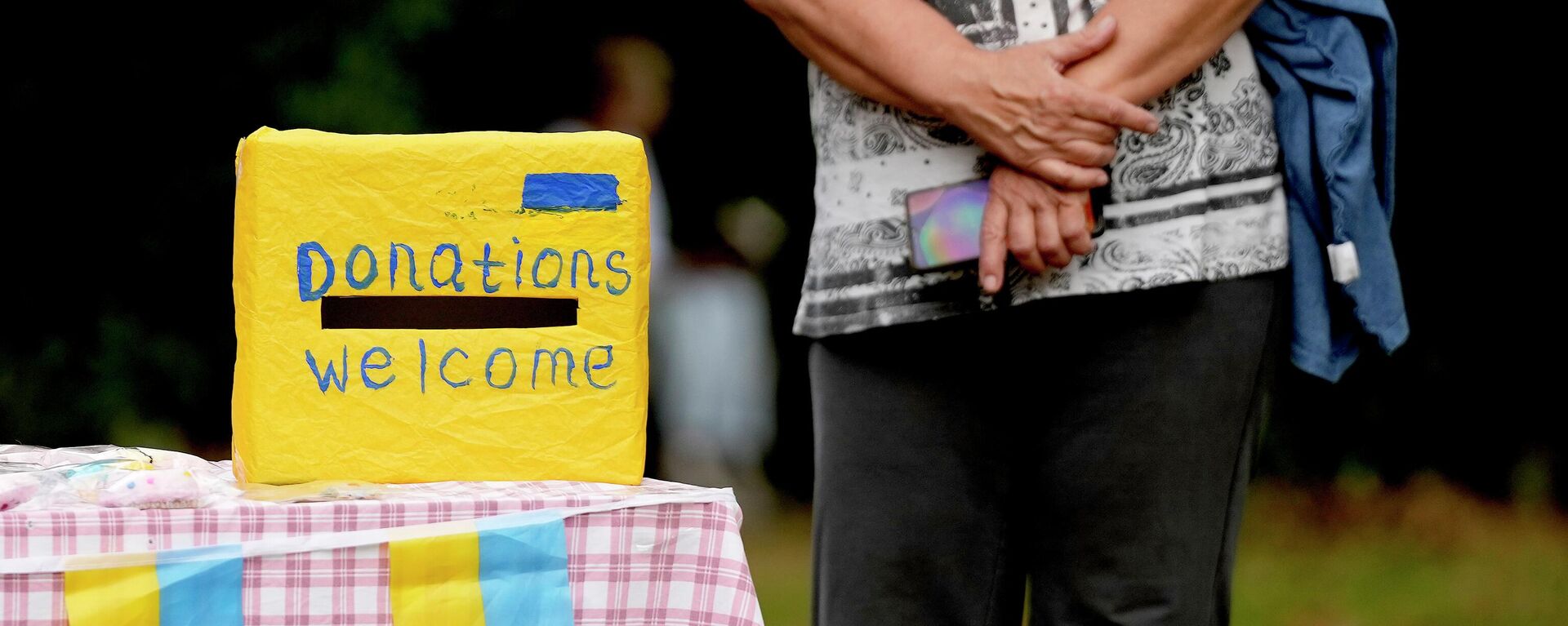
24 November 2022, 17:04 GMT
These findings are notable considering the UN's report of 6.33 million Ukrainian refugees worldwide, with 1.28 million seeking refuge in Russia, the highest number among any other country.
The survey results leave room for three possibilities: either the researchers coincidentally encountered individuals whose relatives did not go to Russia, residents in Ukrainian-controlled cities are too intimidated to admit their relatives' emigration to Russia, or the published results of the IRI study may not be entirely accurate.
NATO Membership and Fate of Russian Language
A significant percentage of residents in various Ukrainian cities
expressed opposition to Ukraine joining NATO. In Odessa, it was 47%, while figures of 38%, 31%, 28%, and 28% were observed in Kharkov, Dnepr, Nikolaev, and Zaporozhye, respectively.
Conversely, the highest support for NATO membership was found in western Ukraine, particularly in Lvov, where 92% voted in favor. The top five cities with the highest 'yes' votes (88-92%) were all in Western Ukraine: Lvov, Lutsk, Ivano-Frankovsk, Ternopol, and Rovno.
A notable opinion gap between Western and Southeastern Ukraine remains.
Additionally, the majority of residents in major southwestern Ukrainian cities, including the Kiev-controlled Russian city of Zaporozhye, acknowledged speaking Russian at home. According to the study, 61% in Nikolayev, 66% in Dnepr, 67% in Zaporozhye, 78% in Kharkov, and 80% in Odessa confirmed this. Moreover, 38% in Kiev and 41% in Chernigov also reported speaking Russian at home.
